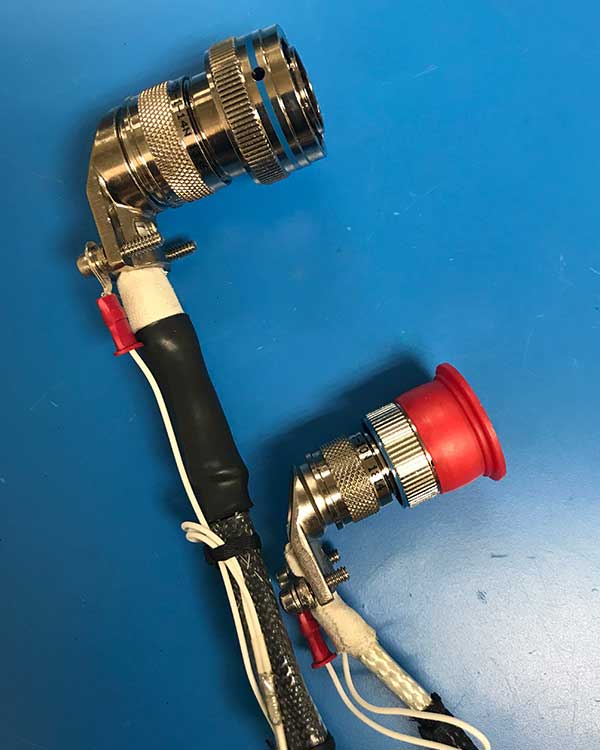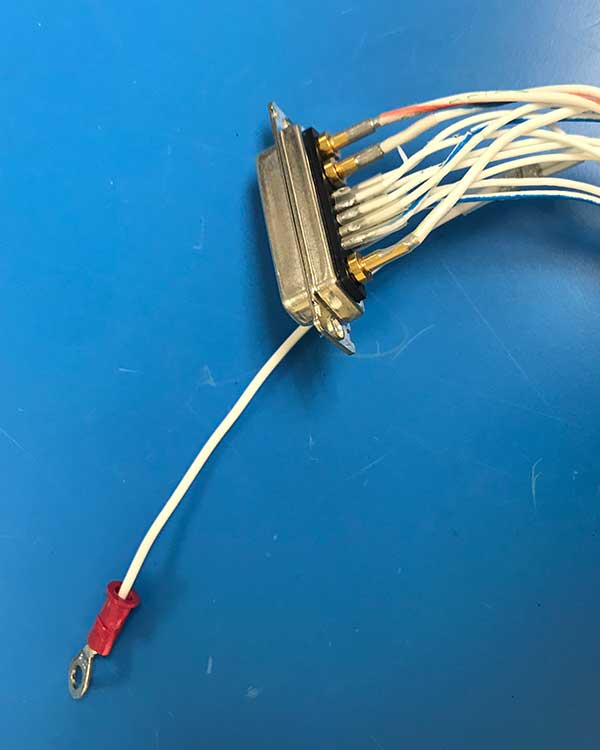CERTIFICATIONS
we never cancel classes · custom class times available · best in the nation
J-STD-001*
This standard describes the materials, methods and acceptance criteria for producing electronic assemblies. This course covers the essentials for the entire manufacturing process from material handling to final inspection. A portion of this class involves Hands-on lab work.
Modules
- Module 1 – General information; materials, component and equipment requirements; general soldering and assembly requirements; cleaning; PCB and conformal coatings; Rework and repair. This module covers all the basic skills required in the electronics manufacturing areas. General soldering requirements are covered along with material storage, shelf and pot life and equipment calibration. Basics of process control methodologies and inspection are covered.
- Module 2 – Wires and terminals mounting criteria. This module covers the basics of swaging terminals to PCBs then the attachment of wires to those terminals.
- Module 3 – Through-hole mounting and termination criteria. This module goes into the details of the forming and placement of through-hole components on circuit boards and the soldering criteria to complete that process.
- Module 4 – Surface mount component termination criteria.This module covers the exact placement of the surface mount components to a PCB/flex circuit along with detailed solder requirements.
- Module 5 – Inspection. This module covers all the inspection criteria from modules 2, 3 & 4 along with process control methodologies such as sample inspections.



J-STD-001 Space Addendum*
The J-STD Space Addendum is used in addition to the J-STD and in some cases, in place of, for assemblies that must survive the extreme vibration and thermal cyclic environments in space and military applications.
IPC-A-610*
The IPC-A-610 certification teaches participants how to effectively inspect and approve commonly encountered electronic assemblies in the electronics manufacturing environment. It is based on a standard published by IPC titled “Acceptability of Electronic Assemblies.”
This course is useful for those involved with final inspection; quality assurance, auditing, or general manufacturing activities.
Modules
- Module 1 – Introduction to 610; material handling and ESD. This module covers the basic concepts that IPC uses throughout their courses and its associated glossary terms. The applicable documents that support this course are reviewed. Basic material handling, electro-static discharge (ESD) basics and facility guidelines are reviewed.
- Module 2 – General and High Voltage soldering criteria. This module covers the acceptable soldering requirements and the various soldering anomalies that can cause defects. High voltage soldering is also covered which requires a different set of criteria.
- Module 3 – Component damage; printed circuit board (PCB) and flex circuit; PCB cleanliness. This module covers damage to individual components; circuit boards, both rigid and flexible, and the cleanliness requirements for those assemblies.
- Module 4 – Terminal swaging and wire soldering. This module covers the attachment of terminals to circuit boards (swaging) and the placement and soldering criteria of wires to those terminals.
- Module 6 – Surface mount component technology. This module focuses on the handling, placement and solder requirements for surface mount components. It is broken down by the component lead type; i.e. gull wing, bottom only component, castellation, D-PAK.
- Module 7 – Hardware installation. This module covers all of the various support materials that are used to install components onto PCBs as well as installing PCAs into product chassis. Threaded hardware, heat sinks, thermal compounds and basic wire use are covered.
- Module 8 – Solderless wire wrap. [Also known as Discrete Wiring] solderless wire wrapping is a process that was/is commonly using in circuit prototyping and electronic test fixtures. This covers the acceptability of wire to pin connections.



IPC/WHMA-A-620
The IPC A-620 was developed in conjunction with the Wire Harness Manufacturing Association (WHMA) and is the industry standard for cable and wire harness fabrication and installation. This course focuses on the inspection and evaluation of IPC standards for Cable/Wire harness assemblies. Measurement, cutting, terminating, and dressing wires into a functional wire harness assembly are covered in this inspection course.
Modules
- Module 1 – Introduction, preparation, measuring & testing. This module covers the basic concepts that IPC uses throughout their courses and its associated glossary terms. The applicable documents that support this course are reviewed. Wire and material preparation are covered along with the correct requirements for measuring wires and harnesses and the final electrical and mechanical testing for the finished assembly.
- Module 2 – Crimped Terminations, IDC This module covers open & closed barrel stamped and formed terminals; machine crimps and some automotive crimp termination requirements. It also covers insulation displacement connections for flat ribbon cable as well as RJ45 modular connections and other discrete wire termination connections.
- Module 3 – Soldered terminals This module covers the wire placement and solder attachment requirements for terminals.
- Module 4 – Military and aviation connectors; Overmolding. This module goes into details on the standard connectors used primarily in military and aviation application. This covers connectorization; keying and both hard and soft surface damage. Acceptance requirements for both injection molding and potting are also covered.
- Module 5 – Splices. The module covers various techniques for splices. Both soldered and various mechanical splice processes are covered.
- Module 6 – Labeling, Securing; Shielding; Protective Coverings and Finished Harness Installation. This module covers the requirements for both temporary and permanent labels and marking, location, legibility and readability. Requirements for securing, electrical and electronic shielding; various types of protective coverings; and the final installation requirements. Safety wiring, grommets and raceways are also covered.
- Module 7 – Coaxial and Biaxial Cables This module covers all the basic requirements for shielding; center pins, both soldered and crimped; grounding and bend radius for coaxial and biaxial cables.
- Module 8 – Solderless wire wrap. [Also known as Discrete Wiring] solderless wire wrapping is a process that was/is commonly using in circuit prototyping and electronic test fixtures. This covers the acceptability of wire to pin connections.



IPC/WHMA-A-620 Space Addendum*
The 620 Space Addendum takes the 620 course to an entirely higher level of performance. This course is for assemblies that must endure extreme levels of vibration and thermal cycling environments such as military applications and space travel. The space addendum uses all the WHMA-A-620 CLASS 3 and augments that with additional criteria.
Note: This is the most advanced IPC certification offered. It is a full five day course that is almost all lab work. A student must be highly skilled in Cable/Wire harness building in order to successfully complete this course. Please call us for explanation.
